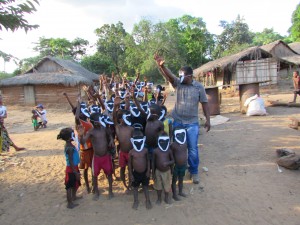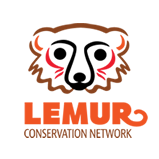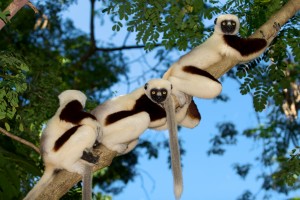What We Do
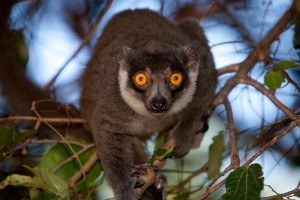 Here at Planet Madagascar we support lemur conservation in northwest Madagascar through focused outreach and education programming.
Here at Planet Madagascar we support lemur conservation in northwest Madagascar through focused outreach and education programming.
We undertake lemur conservation efforts in and around the Ankarafantsika National Park, in northwestern Madagascar. These are primarily focused in three communities: Ambarindahy, Maevatanimbary, and Andranohobaka.
The organization very purposefully implements one project at a time, at a relatively small scale, so that we can work with the three communities on an ongoing basis. Over the next few years, Planet Madagascar will focus on conservation education, fire management, and community livelihoods programs.
In the future, we aim to expand outside of the three communities. We are working hard to seek funding through grants and private donations to fund our projects.
How We Protect Lemurs And Other Wildlife
We work with local communities to help preserve and replenish remaining habitat for lemurs and other wildlife. There are two key areas: fire management and reforestation.
Fire Management
Planet Madagascar works with local community members, including national park staff, to find and implement realistic solutions to bush fires, one of the major threats affecting lemurs in the park. Local residents burn grasses near forest to improve grazing zones for cattle, but fires also accidentally burn forest.
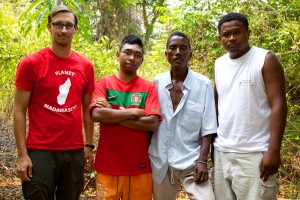
We are working with the community to implement a fire management strategy while contributing to improving the livelihood of people living in the communities. This strategy will provide employment for local residents and also mitigate fire risk for lemurs and their habitat.
Reforestation
We work to cultivate and plant new trees in Ankarafantsika National Park. We focus on two types of restoration: restoring fragmented landscapes to create corridors that connect existing fragments to continuous forest, and erosion control through forest restoration where we plant trees to reduce the impact of erosion.
We hire and train local community members to work with our on-the-ground Planet Madagascar staff members to identify target plant species, collect seeds, build and manage tree nurseries, and plant seedlings. Community members benefit through a salary-based program, thereby providing them with much-needed revenue and by receiving the direct benefits of erosion control through forest restoration.
What Lemur Species We Protect
Planet Madagascar’s work in and around the Ankarafantsika National Park in northwestern Madagascar currently impacts the following lemur species:
Coquerel’s sifaka (Propithecus coquereli)
- Western woolly lemur (Avahi occidentalis)
- Mongoose lemur (Eulemur mongoz)
- Common brown lemur (Eulemur fulvus)
- Gray mouse lemur (Microcebus murinus)
- Golden-brown mouse lemur (Microcebus ravelobensis)
- Milne-Edward’s sportive lemur (Lepilemur edwardsi)
- Fat-tailed dwarf lemur (Cheirogaleus medius)
How We Support Local Communities
Local people are involved at all stages of Planet Madagascar’s projects, as one of the goals of the organization is to develop capacity in Madagascar. Before implementing any project, Planet Madagascar holds stakeholder meetings with community members to facilitate open discussion about the challenges faced by conservation efforts, and to work out collaborative solutions and action plans. Then, while programs are being implemented, relevant members of the community are trained to manage and continue the programs. We endeavor to provide local communities with the tools they need to continue the work and educate themselves about the importance of the conservation projects.
Conservation Education and Community Livelihoods
In September 2014, Planet Madagascar completed a livelihoods survey, speaking with 213 community members in their three target communities. Preliminary results revealed that over 70% of the people did not have knowledge of the different lemur species in their region, and few people were aware of the benefits that lemurs provide to forest ecosystems. For example, in one village, only 8% of people were aware that lemurs disperse seeds. We found that people’s livelihoods depend on the national park and its resources. For example approximately 70% of the respondents stated that their livelihoods depend mostly on the park for food, water, and economic activities.
These results underline the importance of implementing education and development programs in these communities and serve as a baseline dataset that allows Planet Madagascar to measure the impact of projects and education initiatives.
Lambas for Lemurs
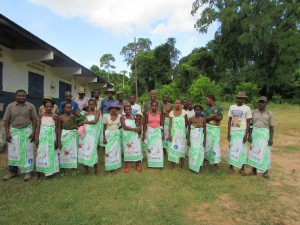
Women’s Cooperative
In 2017 we helped create a new women’s cooperative focused on sustainable agroforestry and forest restoration. We plan to expand from sustainable agroforestry and forest restoration to other projects including sanitation, women’s health, and education.
Educational Documentary
